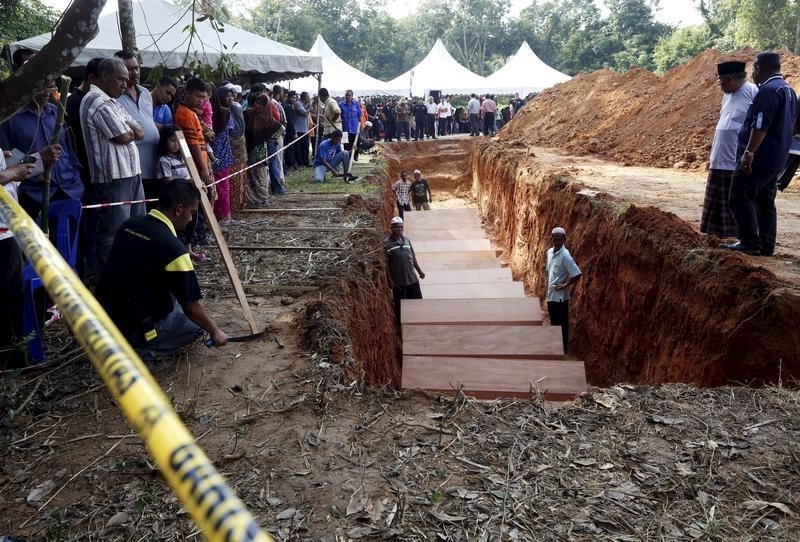By Alex Wilts and Matt Spetalnick
WASHINGTON (Reuters) - Senior U.S. lawmakers expressed concern on Tuesday about whether the State Department's annual global report on human trafficking may have been watered down due to political considerations and vowed to demand a full accounting at a Senate hearing this week.
Human rights groups called for an investigation into why strategically important countries such as Malaysia and Cuba were upgraded from the list of worst offenders in human trafficking, after a Reuters article chronicled how senior U.S. diplomats repeatedly overruled State Department human rights experts.
The State Department denied that the country-by-country ratings in the latest report had been politicized.
"I have a number of serious concerns about the State Department's human trafficking report," said Republican U.S. Senator Bob Corker, who will chair a Foreign Relations Committee hearing on Thursday to review the 2015 global assessment.
"If it is true that the administration politicized this report, they must immediately answer a number of questions about why they chose to significantly diminish a tool that has been effective in fighting slavery around the world," he added.
Democratic Senator Bob Menendez, who also sits on the panel said: "If true, the Reuters report further confirms what I, along with the human rights community, have feared all along: The State Department's trafficking report has been blatantly and intentionally politicized."
Lawmakers will question Sarah Sewall, who oversees the anti-trafficking office as undersecretary of State for Civilian Security, Democracy and Human Rights.
A Reuters examination, based on interviews with more than a dozen sources in Washington and foreign capitals, showed that the State Department office set up to independently grade global efforts to fight human trafficking was pressured into inflating assessments of 14 countries in this year's report.
Among the countries that received higher rankings than recommended by the Office to Monitor and Combat Trafficking in Persons were Malaysia, Cuba, China, India, Uzbekistan and Mexico, the sources said.
STATE DEPARTMENT: 'WE STAND BY THE PROCESS'
Amy Sobel, vice president of Human Rights First's anti-trafficking campaign, said Reuters' findings pointed to broader political interference, which risked "eroding the effectiveness" of the report and undermining international efforts.
State Department spokesman Mark Toner insisted the rankings are decided through "rigorous analysis" and said, "We stand by the process." But he acknowledged that allegations of political bias could damage perceptions of the report's credibility.
Analysts in the anti-trafficking office disagreed with U.S. diplomatic bureaus on ratings for 17 countries, the sources said. The analysts, who are specialists in assessing efforts to combat modern slavery, won only three of those disputes, the worst ratio in the 15-year history of the unit.
The number of rejected recommendations suggests a degree of intervention not previously known by top State Department diplomats in a report that can lead to sanctions.
The analysts' recommendation to downgrade China, the world's second-biggest economy, to the worst ranking was overruled despite the final report's conclusion that Beijing did not undertake increased anti-trafficking efforts in the past year.
The Chinese Foreign Ministry, asked about the Reuters story, said Beijing was "resolute" in the fight against human trafficking. But it chided the United States for "thoughtless remarks" and for grading other countries' efforts.

Malaysia's upgrade from the lowest grade could smooth the way for an ambitious proposed U.S.-led free-trade deal with the Southeast Asian nation and 11 other countries.